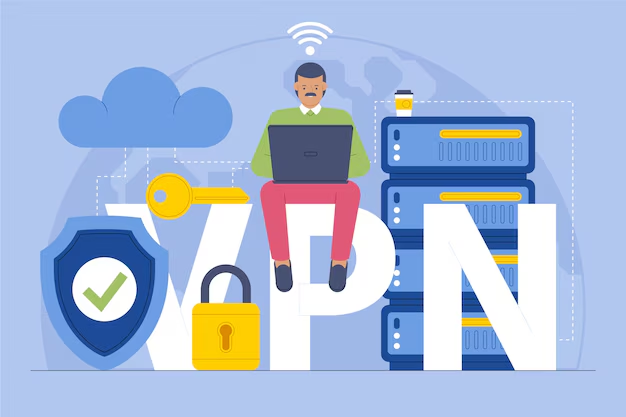Top 16 Most Asked Questions About VPNs

In this digital world, having a reliable VPN to encrypt data is no less than a blessing. Despite its growing popularity, I believe some factors about the VPN are still shrouded in mystery. Are VPNs illegal? Do VPNs steal data? Or, do VPNs slow down our internet speeds? I believe questions like these need to be answered and that is what I’m going to do in this post. So, let’s start:
How Does a VPN Work?
A VPN changes your device’s IP address and offers an encrypted tunnel via its secure servers. The data you send or receive first goes through the VPN server and then makes it to the destination. This way, your identity remains hidden from malicious actors on the internet.
Do VPNs Slow Down the Internet?
Yes, VPNs may significantly slow down your connection speeds. It’s because your data has to cover an additional mile of going through the encrypted VPN server first and then to its destination.
How to Ensure the Internet Speeds Do Not Drop While Connected to a VPN?
To ensure fast speeds, select a VPN server near you, use the IKEv2 protocol, and opt for a wired connection instead of Wi-Fi. If you’ve subscribed to high-speed internet, for instance, Spectrum Internet, which stands tall with its Gigs speeds, then you may not feel even the slightest dip in your connection speed while connected to a VPN.
Are Free VPNs as Good as Paid Ones?
No, because free VPNs may use obsolete security measures to protect your data and even after connecting to it, your data may still be at risk. Also, free VPNs usually have limited servers and users may not be able to surpass all the geo-restrictions they want.
How Do Free VPNs Make Money?
Most free VPNs run ads on their platform to make money. However, some free VPNs may also steal users’ data and sell it to third-party advertisers to generate income.
Are Free VPNs Better Than No VPNs?
If you want to surf social media platforms securely or access geo-restricted content, then free VPNs may help. However, if you want a VPN for professional use, for instance, remote work, then a free VPN is not recommended.
Are VPNs Recommended While Using Banking Applications?
Only paid VPNs are recommended while using a banking application. It’s because paid VPNs use strong security protocols which enable them to secure user privacy and data.
Can a VPN Help in Gaming?
VPNs may help you access geo-restricted game servers as they may change your device location to the connected server.
Can A VPN Help in Remote Working?
Remote workers may send or receive important work files. Here, a VPN may help them secure incoming and outgoing data by encrypting it.
Can A VPN Stop My ISP From Bandwidth Throttling?
Yes, you may restrict your ISP from bandwidth throttling by using a VPN. Most ISPs throttle users’ connections based on their IP address. So, with a fake IP address assigned by the VPN, ISPs may not be able to detect the users and throttle their internet.
Can A VPN Stop ISP From Spying on My Activity?
Yes, a VPN may stop your ISP from sneaking into your online activity. A VPN may prevent your ISP from looking at the sites you visit and your activity on those sites.
Are VPNs Illegal?
VPNs are perfectly legal to use in the U.S. However, some countries that do not want people to access restricted content may ban the use of VPNs.
What Is a Kill Switch?
A kill switch automatically disconnects your device from the internet if it gets disconnected from the VPN. So, if you’re engaged in a sensitive task or sending/receiving important data files, a kill switch will halt the connection by disconnecting the internet.
What Is a VPN Router?
In a VPN router, a VPN is not installed on a device, but rather on a router. All the data that is sent or received over a router is encrypted because the source i.e., router is connected to a VPN.
Should I Always Leave My VPN On?
Yes, you may always stay connected to a VPN as it’ll help you encrypt all the activity on the connected device. However, if you’re using a device without internet connectivity, then you may turn off the VPN.
What Factors Make a VPN Best to Use?
To determine if a VPN is worth using or not, you can look out for the following factors:
- Security: Determine what security protocols and encryption methods a VPN uses to secure your data.
- Servers: As a general rule of thumb, the more servers, the better VPN it is because you may have options to connect to servers available.
- Additional Features: It is vital to consider what additional features, i.e., kill switch, security protocols, and ad blockers, a VPN offers.
Bonus Question: Which VPN Should You Use?
Following are some of the best VPNs available:
- NordVPN
- Surfshark
- ExpressVPN
- ProtonVPN
- Mullvad
READ MORE magazinenow.co.uk




